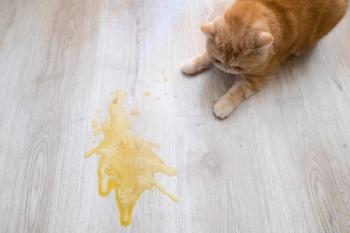
Anifera granted seed funding from the CIEL for research
The funding will allow the company to discover the efficacy of its leading compound to further improve antibiotic treatment for bovine mastitis.
Anifera, a company dedicated to developing adjunct therapy to improve the efficacy of animal care antibiotics, has received seed funding from the United Kingdom’s Centre for Innovation Excellence in Livestock (CIEL), for researching its leading compound’s effectiveness as an adjunct therapy in bovine mastitis.
“The need to find innovative ways to increase the efficacy of currently-used antibiotics is becoming much more critical, with significant pressure to reduce or discontinue the use of many newer first-line therapies,” said Gwynneth Thomas, PhD, MBA, CEO of Anifera, in the release.1
“We are grateful to CIEL and MRI for supporting this important study, which will allow us to move our leading compound closer to commercialization as a more sustainable option for farmers, ultimately improving yields and quality and reducing unnecessary antibiotic use,” she continued.
Anifera will collaborate with the Moredun Research Institute (MRI) in Midlothian, Scotland, which conducts world class scientific research to enhance livestock health and welfare through preventing and controlling infectious diseases.1 The results will be utilized to confirm efficacy previously observed in a small-scale study and to discover more commercialization options for the leading compound for bovine mastitis treatment.
“The project backed by CIEL, thanks to the support of Innovate UK, will greatly assist in determining the benefit that our leading compound can bring to veterinarians and dairy farmers in terms of direct reduction of mastitis and related costs,” said Antonio Benitz, DVM, MS, a member of Anifera’s board, in the release.1
“It will also help us to establish the potential of our leading compound to enable the repurposing of older antibiotics, which may no longer be considered sufficiently effective,” he added.
To learn more about Anifera and its mission, go
Reference
- Anifera awarded seed funding for research from UK’s Centre for Innovation Excellence in Livestock (CIEL). News release. September 14, 2021; Anifera. Accessed September 14, 2021.
https://news.cision.com/benz-advisory/r/anifera-awarded-seed-funding-for-research-from-uk-s-centre-for-innovation-excellence-in-livestock--c,c3414674 - Monistero V, Graber HU, Pollera C, et al. Staphylococcus aureusIsolates from bovine mastitis in eight countries: Genotypes, detection of genes encoding different toxins and other virulence genes. Toxins (Basel). 2018;10(6):247. Published June 17, 2018. doi:10.3390/toxins10060247
- Putz EJ, Palmer MV, Ma H, et al. Case report: Characterization of a persistent, treatment-resistant, novel Staphylococcus aureus infection causing chronic mastitis in a Holstein dairy cow. BMC Vet Res. 2020;16: 336. Published September 15, 2020. doi: 0.1186/s12917-020-02528-8
Editors note: All veterinary technician content for this month is supported by Banfield Pet Hospital.
Newsletter
From exam room tips to practice management insights, get trusted veterinary news delivered straight to your inbox—subscribe to dvm360.




